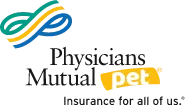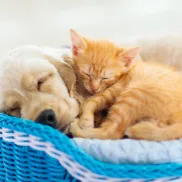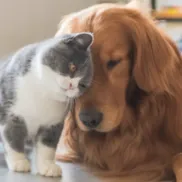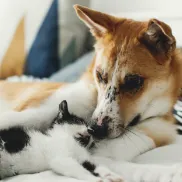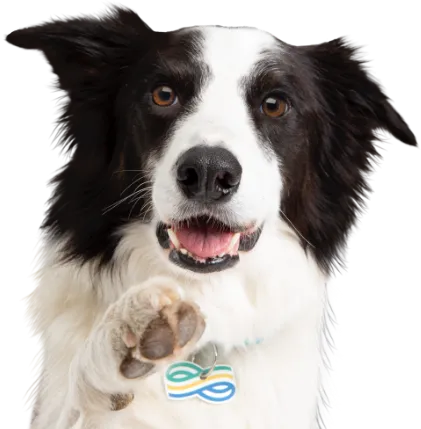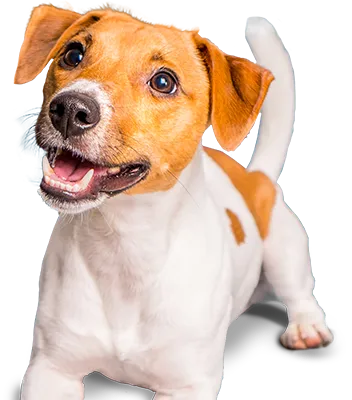Dogs and grass: Why do they eat it — and should you make them stop?
“Why do dogs eat grass?”
It’s one of the more commonly asked questions of veterinarians. We ask it, yet many of us probably assume that when dogs don’t feel well, they eat grass so they can vomit or “pass something” to relieve their upset tummy.
But that’s not why.
Studies show most dogs don’t act ill before they eat grass — and most dogs don’t vomit after a little grazing.
So, why do dogs eat grass?
Family history
Dogs have a natural instinct to scavenge.
They get that from their ancestors — dogs in the wild — who consumed anything that helped them fulfill their basic dietary requirements.
Dogs aren’t true carnivores (strictly meat eaters). Nor are they exactly omnivores (meat and plant eaters) either.
But by eating what they hunted (including the stomach contents of their prey, which often contained grass and plants), wild dogs were able to fulfill their basic dietary requirements, including the need for fiber.
Loneliness, anxiety and boredom
Dogs crave human interaction, especially with their owners. Their world revolves around us. They watch us leave and can’t wait for us to come home.
Lonely, anxious or bored dogs often chew things to pass the time. And when it comes to eating grass, it’s been shown that grazing increases as owner contact time decreases.
- When left outside for too long, dogs might nibble grass to pass the time.
- If feeling lonely and neglected, dogs can turn to eating grass, especially if the grazing gets their owner’s attention.
- Anxious dogs sometimes eat grass as a way to comfort themselves, similar to how some nervous people chew their fingernails.
For lonely, anxious and bored dogs — grass-eating or not — try these tips:
- A new toy or an old shirt with your familiar scent might provide some comfort.
- A food-containing puzzle toy can provide your dog with mental stimulation.
- More activity! More frequent walks and play time.
- Doggie day care
A key nutrient might be missing
Eating non-food items (like grass) is known as pica, and can sometimes be associated with a diet that’s deficient in nutrients, vitamins or minerals.
But dogs on well-balanced commercial diets shouldn’t be lacking in nutrients. Let your vet know if you feed your dog home-prepared meals to make sure it’s a balanced diet.
And sometimes, they’ve just got to have a salad
Similar to how we sometimes crave a salad or raw veggies, many dogs just like the taste and texture of grass.
Some even prefer new grass in the spring. Untreated (free of fertilizer, etc.) grass is a good source of fiber. Since dogs need roughage in their diet, it’s a win-win.
Should I stop my dog from eating grass?
No … and yes.
If your dog is routinely treated for parasite prevention, and the occasional grazing session doesn’t make it sick, it’s OK to let your dog go with its natural instincts on this once in a while.
But grass isn’t the best snack for dogs for two main reasons:
- Herbicides and pesticides sprayed on grass can be toxic for your dog.
- Your dog may ingest intestinal parasites such as hookworms and roundworms that contaminate the grass in fecal residue from other dogs.
So, encouraging your dog not to eat grass is … encouraged.
To do that, redirect your dog’s attention from the grass with a simple “heel” command. Offer treats, verbal praise, and pets while on walks, and a little extra play time while in the yard.
Be on the lookout for grass awns
Be careful of letting your dog graze in wild grasses. Grass awns are the seed pods of certain tall grasses such as foxtail and cheatgrass. These weedy grasses form seed pods that have tiny barbs in them that allow them to attach to animals and objects. It’s nature’s way of spreading the grass seeds, but dangerous for your pets.
Sometimes grass, particularly grass awns, can become lodged in the back of your dog’s throat or between his teeth. If your dog wretches after eating grass or paws at his mouth, check for lodged grass as a possible cause.
Get one step closer to protecting your pet.
or call us at


